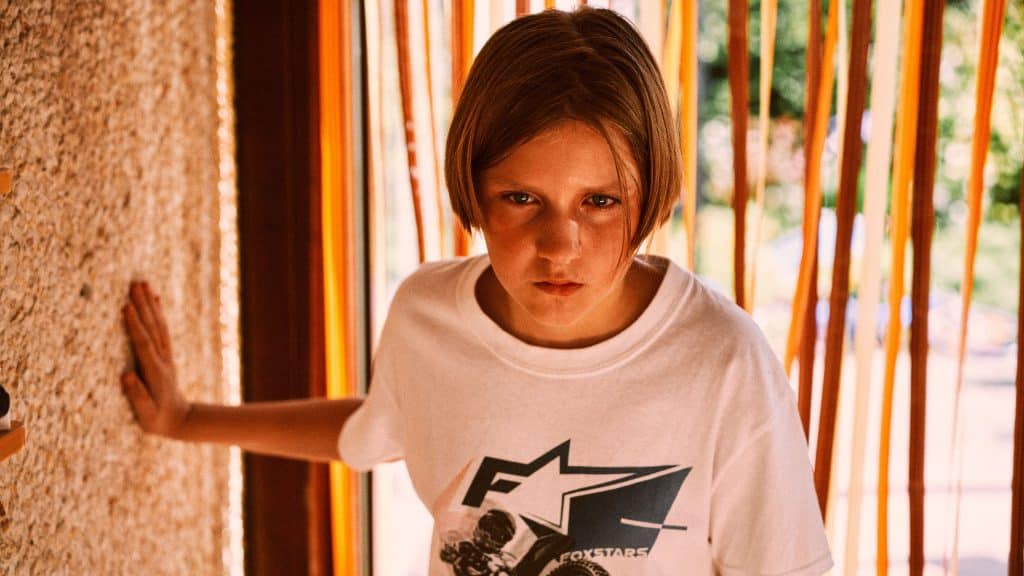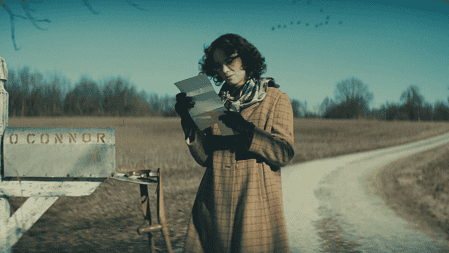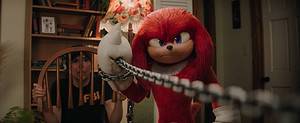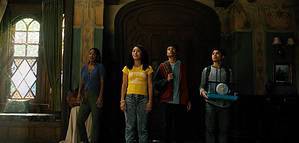Veerle Baetens’s first feature length film When It Melts focuses on Eva, who grew up in a small Belgian village with her younger sister and parents. We meet her at a time in her life where she seems either uncertain about those around her, or at peace with the conclusions she’s come to about them and simply chooses not to engage. The film jumps between Eva’s present-day affairs and a particular summer 13 years in her past. When she comes across a social media post announcing a memorial celebration hosted by the surviving brother whom she spent countless hours with in her adolescence, Eva decides to return to the place she experienced immense emotional pain for the first time in her life. Baetens finds an interesting way to direct this difficult film but the effort results in an unevenly balanced structure that offers little hope or solace, if any, by the time the credits roll.
During that summer 13 years ago, Eva spent time hanging around with two other boys, Laurens, whose mother owns and operates a butcher shop (behind which a hideout has been fashioned with numerous hay bales forming a corridor that leads to a makeshift separate room), and Tim, whose brother passed recently after falling into a cesspit on the plot of land his family owns. They were lovingly dubbed The Three Musketeers, not only because there were three of them but because together they embodied the ideal image of purity only their youth could lend. Not necessarily among themselves, but more for the villagers who knew them in passing who would remark on the trio gallivanting around the protective bubble their community provided.
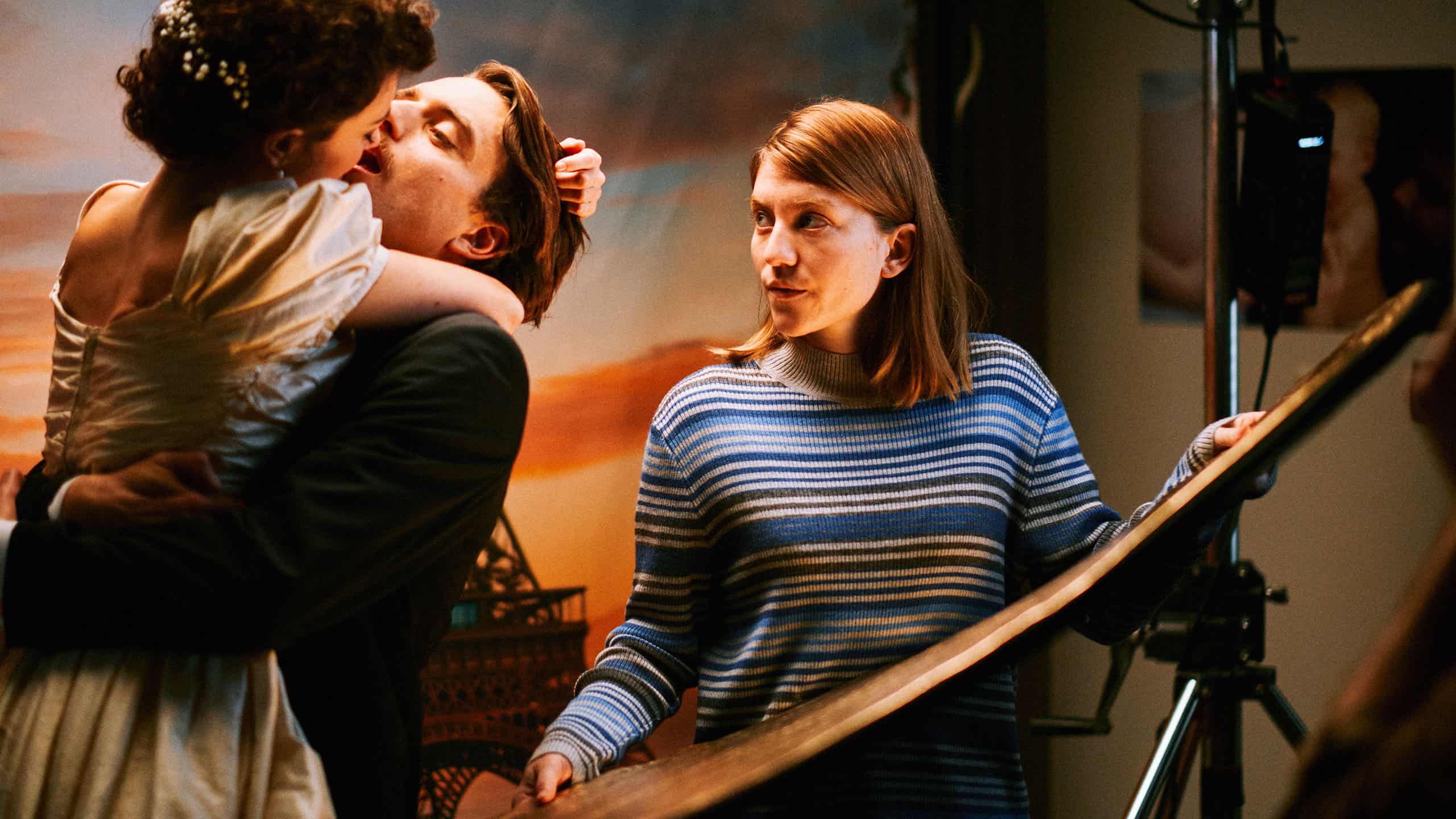
It’s when the film takes us to Eva’s time with the Musketeers in her past where When It Melts feels most focused; Eva’s present-day endeavors feel jagged and incomplete compared to the sequences showing her youthful days. Her past holds the key to her motivations towards the second half, but does so much heavy lifting because of it that it’s evident the story of that summer could very well have been the prime focus of the film. Once Eva arrives back in her home village there is an aimlessness that can’t solely be attributed to her feelings of discomfort, that feeling incorporates its way into the film both experientially and structurally.
Eva has cut off communications with her parents as an adult, and every interaction with her sister Elisa that veers into the topic of their mother and father leads her to shut down every time. Growing up as a family, Eva noticed her parents constantly fighting even in plain view at the dinner table. Eva has since picked up the duties of protecting her little sister when their mother was too drunk to take care of them properly. Because Eva starts to drift from her parents as a supportive force, she latches onto Laurens’s mother instead who makes an active effort to communicate with Eva and making her feel seen and appreciated.
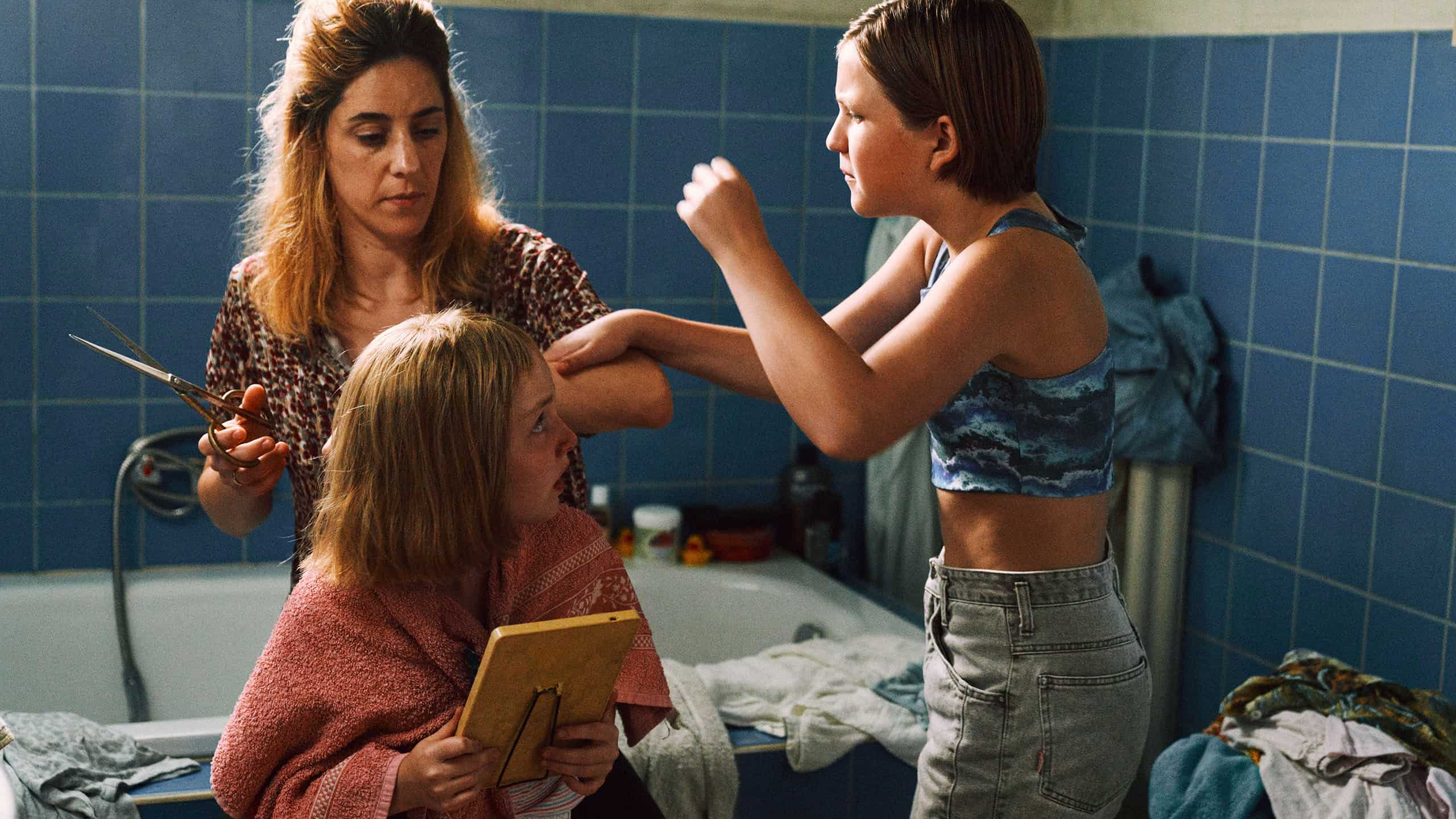
Eva spends some time in the butcher shop once in a while, and Laurens’s mother gives her an invitation to talk to her about anything that is troubling her. Eva takes this to heart, disregarding her family’s duties to do just that, but the faith she puts into this promise turns out to be almost as earth-shattering as what happens before that. As we delve further into the events of the summer of Eva’s past, returning to the present has little to say about her now. There is an emptiness about the purpose for her story once she confronts her painful past.
When It Melts spends a significant amount of time shining a light on the sexual development of its adolescent characters. But more specifically, it shows the male characters as those willing and able to explore themselves freely and without consequence, something that echoes louder and louder over time not only in this film, but in the reality we live in. One day, Eva arrives at the hideout to find Tim and Laurens are already there, however they pass the time touching themselves, the radio blaring pop tunes and a magazine model pinup providing them with a visual aid to focus their contained lust. Were this an isolated moment, Eva may have looked back on it as an innocent slice of sexual curiosity of which she wasn’t a part of. Unfortunately, this was a moment that sent both Tim and Laurens into an obsession that consumed them, clouding their own senses of how others were treated in the shadow of their own selfish desire.

A game is created for both Tim and Laurens’ pleasure in mind, Eva tagging along perhaps because she still wants to belong. A girl or two is brought back to the hideout and asked a riddle. For each guess that’s given that is wrong, the girl must remove an article of clothing. The boys request that the riddle be purposefully difficult to guarantee multiple tries, and Eva complies each time they play. From its innocent beginnings, the Three Musketeers have transformed the dynamic of the three friends. Eva becomes essentially held hostage by the majority male rule of the group, whether she notices it or not.
What comes across as the most arrestingly compelling part of When It Melts is the way it’s shot. Many moments with Eva across time are captured with such raw unfiltered emotion that fills the negative space of each single shot close-up with disquiet, the space welling up with an unseen extension of herself. Even the way mundane shots are framed find a way to stick out in your mind upon recollection, one scene being when Eva is told the central riddle to the film’s climax and ultimate ending in her childhood home. Her father reads off a riddle telling of a scenario where a man is hanging dead from a rope but the only thing in the room is a small puddle underneath his feet. How did he kill himself? The film’s dark punchline is treated as its biggest mystery, which is a failing in how it decides to frame itself around the titular “It” that which melts.
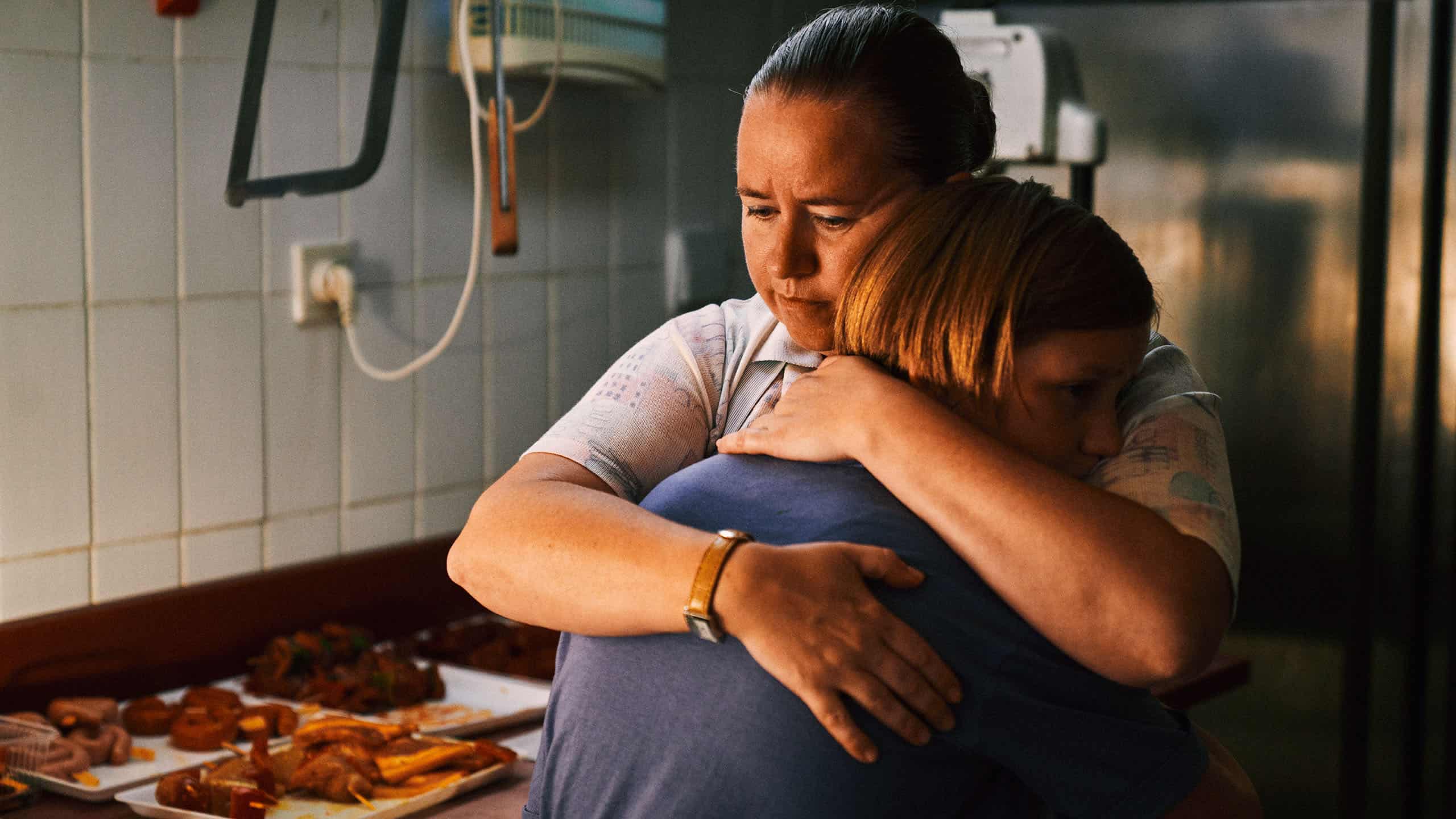
The moment that doesn’t get the focus it deserves here comes after the main abusive act inflicted on Eva. She goes to the butcher shop to seek help from Laurens’s mother but after laying herself bare in pure honesty of the crime committed against her, instead of the compassion and support promised her she is instead greeted with a void of emotion. She doesn’t know how to respond, so she instead chooses to downplay the transgression and ignore it. Whether or not that response had been remedied, even a day later, that initial reaction stuck to Eva like a parasite and wiped out any semblance of hope she may have had for any who would look out for her wellbeing. Once you look into the void so the void looks back into you; the world has told her that she is on her own. When It Melts delivers a heavy experience well despite its lack of clarity, but the voice Baetens taps into is something to look out for.
When It Melts had its World Premiere in the World Cinema Dramatic Competition section of Sundance Film Festival 2023.
Director: Veerle Baetens
Writers: Veerle Baetens, Maarten Loix
Rated: NR
Runtime: 111m
An Emotionally Devastating Exploration Of Untreated Trauma
-
GVN Rating 6
-
User Ratings (0 Votes)
0

Andre is an avid film watcher, blogger and podcaster. You can read their words on film at letterboxd and medium, and hear their voice on movies, monsters, and other weird things on Humanoids From the Deep Dive every other Monday. In their “off” time they volunteer as a film projectionist, reads fiction & nonfiction, comics, and plays video games until it’s way too late.


